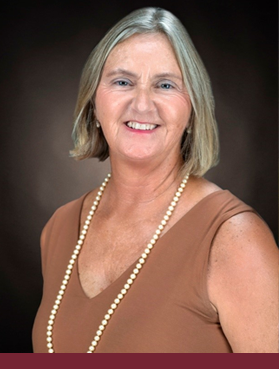
Written by Susan B. Fowler, PhD, RN, CRRN, FCNS
 By Susan B. Fowler, PhD, RN, CRRN, FCNS • May 16, 2022
By Susan B. Fowler, PhD, RN, CRRN, FCNS • May 16, 2022
Each year, the American Nurses Association (ANA) commemorates National Nurses Month in May to honor the varying roles of nurses and their unwavering commitment to patients, their communities and our healthcare systems. For 2022, the ANA has selected the tagline Nurses Make a Difference, with each week of the month-long nursing recognition focusing on the themes of self-care, recognition of fellow nurses, professional development and community engagement. To promote these themes, join us for a month-long TESU Blog series contributed by our nursing course mentors. Week 3 focuses on professional development and how nurses can excel and lead in their nursing career or inspire and help others in their professional journey.
I have never had a mentor.
That is probably why I am passionate about mentoring.
Having a healthy mentoring relationship is beneficial to anyone looking to grow and advance in their career. But in the nursing profession, having a mentor holds more significance. It can help nurses grow their talents, knowledge, skills and compassion to impact the art and science of nursing practice and provide for better patient outcomes.
At its core, a mentor is someone who believes in you.
I would describe this person as a cheerleader, a guide, a support system or a promoter. Harkening back to the classic story The Little Engine That Could, a mentor inspires others to believe that “I think I can.”
To be a mentor – a good one – you must believe in the people you are mentoring and recognize their potential in achieving a goal. That goal could be a professional one, such as writing a manuscript and getting it published, or developing a policy paper that results in a practice change at an organization.
The goal could also be personal. Examples might include losing 10 pounds, eating a more balanced diet or learning a new art or craft.
Whatever the goal, whether professional or personal in nature, the guidance mentors provide can be invaluable.
Some people don’t even know that they need or want a mentor until someone reaches out to them suggesting a new goal or opportunity to be mentored.
Most colleagues I have mentored did not reach out to me asking for my help. Instead, I recognized their strength and growth opportunity and extended my reach to them. It inspired them to think big and bold about themselves. More than 90 percent of my research investigations and subsequent publications have included other nurses I have mentored through the research and publication processes. Because I believed in their potential, they are now returning the favor in extraordinary ways to the nursing profession.
I was honored with a mentoring award from the American Association of Critical Care Nurses (AANC) in 1998 and the Mary Decker Mentoring Award in 2021 from the American Association of Neuroscience Nurses. These awards are not about the credentials behind one’s name, but rather, the spirit of unselfish support.
“My mentor said, ‘Let’s go do it,’ not ‘You go do it.’ How powerful when someone says, ‘Let’s!’” — Jim Rohn

Written by Susan B. Fowler, PhD, RN, CRRN, FCNS